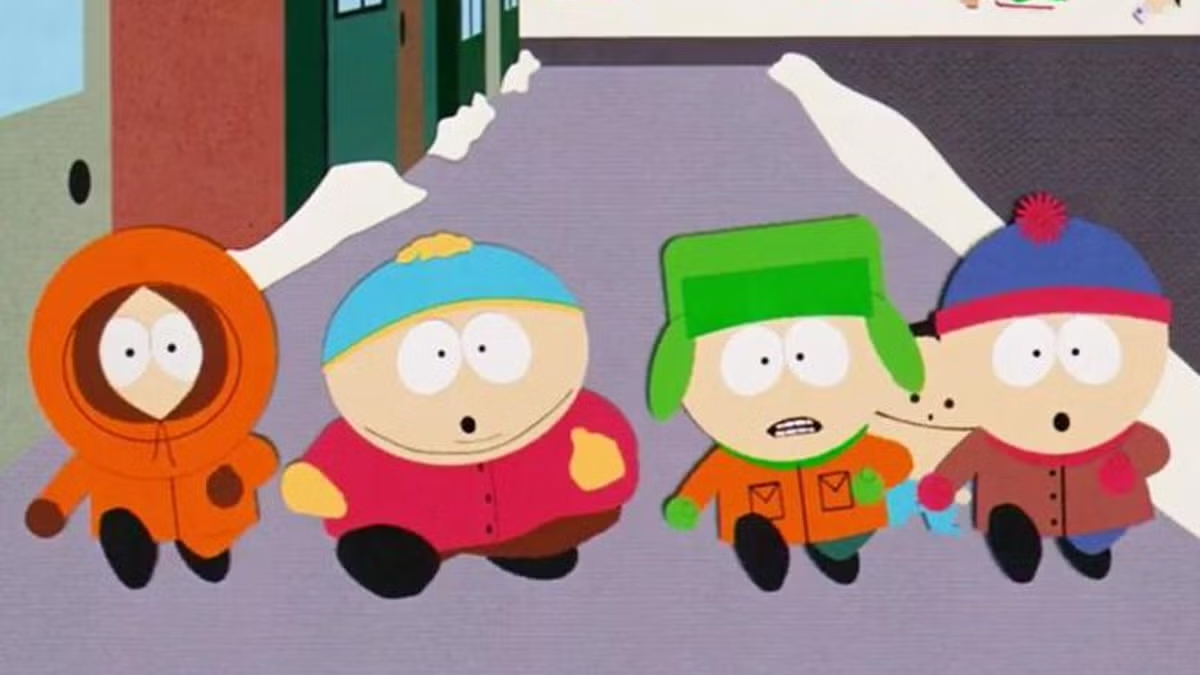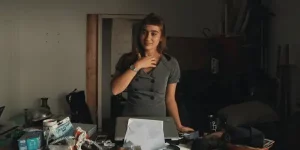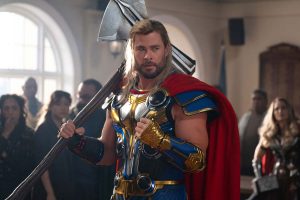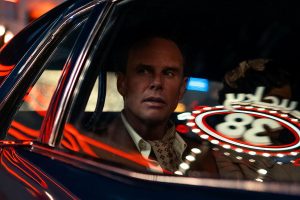
On June 30 1999, Trey Parker and Matt Stone’s infamous creation, South Park, made its leap from Comedy Central to the silver screen with South Park: Bigger, Longer and Uncut. Possibly the fastest example of a TV series making the jump to film, South Park was greenlit right at the end of the first season, and production started during the second and third seasons. Bigger, Longer and Uncut would go on to fully highlight the sheer magnitude of Parker and Stone’s comedic and satirical strengths, working as a metatextual commentary on censorship and scapegoating while dealing with its own veritable censors at the MPAA.
But more notably, the South Park movie showed how much of a musical theater-loving nut Parker was by fully embedding singing-and-dancing flair in his and Stone’s first animated feature venture. (Remember that Parker’s directorial debut was the Troma-released horror comedy Cannibal! The Musical.)
Through collaboration with legendary composer Marc Shaiman (of later Hairspray and Some Like It Hot fame), Parker and Stone delivered a plethora of phenomenal showtunes that I still grit my teeth over not having available to me on Spotify. I know it’s a great soundtrack, you know it’s a great soundtrack. Hell, even the late Stephen Sondheim, one of the legends of music theater, called it “the best musical he’s seen in the past 15 years.” And that was 1999. Man just bypassed the entire Disney Renaissance. It’s that iconic. So in time for the 25th anniversary, here are all the songs from South Park: Bigger, Longer and Uncut ranked. And to make sure this ranking was fair, I excluded the film’s end credits songs “What Would Brian Boitano Do (DVDA version)” and Michael McDonald’s soulful and funny “Eyes of a Child.”
12. I Can Change
As far as “secondary” villains songs go (a trend you don’t necessarily see in movie musicals), Saddam Hussein’s little ditty about doing the bare minimum to retain Satan’s infatuation has a nice snake-charmer melody to it. “I Can Change ” is moderately funny in context of the scene, mainly when his cardboard box-shaped body dances around to Shaiman’s Arabian-infused score. It’s fairly short and does its job illustrating the full extent of the imbalanced relationship Satan and Saddam share. But in the grand scheme of the plot, ”I Can Change” bogs down the film’s pacing, padding out the already short runtime rather than being anything that integral to the story.
11. Wendy’s Song
I was so close to not even mentioning “Wendy’s Song” on this list. On the surface, it’s a joke song that never lives up to those sincere lyrics used as a wind to every instance Stan attempts to talk to Wendy (instead he pukes on her). Then I thought about the context of Stan and his arc itself, and it’s relatively stronger for Stan’s character. Away from the obvious joke, the song and all of its reprisals nicely highlight Stan’s thorough determination to fight for Wendy’s affection by coming into his self-confidence. And without needing help from the clitoris. Jesus what did I just write?
10. Could It Be You’re Free at Last/Hell Isn’t Good
Would you look at that, a two-header! You can try to separate these two tunes all you want, but “Could It Be You’re Free at Last” and “Hell Isn’t Good” are part of one fantastic visual sequence that takes advantage of the film’s large cinematic scope. The hard transition from a stringy, heavenly score as Kenny ascends into the celestial afterlife before the instant heavy rock drop—which begins after he’s denied entry and plunges to the fiery depths of the underworld—is as bone-chilling as it is funny. Plus, Parker and Stone got none other than James Hetfield of Metallica to sing the latter tune. There’s something funny about Hetfiled singing “hell isn’t good. Hell.” several times. It still works despite the dismay of Parker, who expressed his dislike of the lyrics on the 2009 blu-ray audio commentary.
9. It’s Easy, M’Kay
Mr. Mackey’s attempt in rehabilitating the kids’ from dropping swears is a hilarious, folksy tune with great rhymes that still catches me off guard. The lines “You don’t have to spend your life addicted to smack / homeless on the streets giving handjobs for crack,” is such peak humorous songwriting. The composition of the scene is also as lively and energetic as the tune. The only thing holding it back is how inconsequential the song is considering that the kids immediately watch the Terrance and Phillip movie, Asses of Fire, all over again. So the fact that it doesn’t matter negates the importance of the song despite it being a super-duper catchy and well directed number, m’kay.
8. I’m Super
Upon rewatching Bigger, Longer and Uncut, I was astounded with how outward and welcoming the LGBTQ+ representation still appeared. While gay representation in comedy films was mostly utilized as a punchline to emit shock value in the 1990s and 2000s, Bigger, Longer and Uncut embraces it through its musical identity and characters. Even in comedic characterizations, like Satan and Saddam, it’s done to illustrate a toxic relationship better than any film at the time would explore.
The now retired Big Gay Al character was introduced as a walking gay stereotype early into the show’s run. But his big song at the USO show during the third act deserves to be a pride anthem. It’s a showstopping, sincere, enthusiastic bop about being here and queer. What also elevates it are little details, such as the mostly straight male soldiers (I see you Mr. Garrison) cheering him on and an animated Marc Shaiman appearing in the background playing the piano. Though it’s meant to be a “Be Our Guest” parody number (from Beauty and the Beast), the song and scene triumph in being a joyous celebration of being gay. It stands against the test of time and social landscape, and for the always gleefully offensive South Park, that’s impressive.
7. What Would Brian Boitano Do?
I assume most people in the world didn’t know who the hell Brian Boitano even was before this upbeat, motivational song’s creation. “What Would Brian Boitano Do?” is a catchy character-driven number that reignites Stan, Kyle, and Cartman’s drive to save Terrance and Phillip. It also might’ve been the most kindly a famous person has ever been depicted in South Park history.
Boitano might be a friggin’ figure skater but he’s also a time-traveling hero who can skate his way to save civilizations and the world from destruction. It’s a silly, light-hearted song that ends on such a great cinematic shot. On top of that, Boitano’s Twitter profile picture to this day remains his South Park caricature. I mean, no other celebrity would even dare to do that. But of course Brian Boitano would!
6. Kyle’s Mom’s a Bitch
It’s “Kyle’s Mom a Bitch.” Come on. It’s one of the most iconic tunes to South Park’s entire legacy. Yes, points are deducted from it being an adaptation from the show from the episode, “Mr. Hankey, the Christmas Poo.” But that doesn’t negate the song from being any less important to the story and an absolute bop.
The orchestratic horn and flute which play when Cartman starts the song is so toe-tapping that you can see why the other kids became infected with glee and joined in. Plus Cartman going global with his Sheila Broflovski haterade, singing it in Chinese, French, Dutch, and Swahili, takes the song to A-tier greatness. It’s one of those earworms that never get old. Speaking of earworms…
5. Uncle Fucka
There’s nothing like setting the tone. You gotta woo someone with dinner before bringing them home. Or for the case of Bigger, Longer and Uncut, you gotta start the hard R-rated movie with a hard R-rated song. “Uncle Fucka” is the perfect room temperature setting that emphasizes what you’re about to see ain’t for your goddamn children, even in the metatextuality of the South Park kids sneaking into Terrance and Phillip’s R-rated movie. While being a short, boppy number that sets up the censorship-oriented story, it’s also a tremendously funny song that gives so little fucks and will live in your head rent free for weeks on end.
4. Blame Canada
The song that made South Park an Academy Award-nominated film, Sheila Broflovski’s mob-rallying villain song is as timely as it is frightening. Just as any social commentative song should be. You can feel the catharsis in Parker’s experience as the show’s co-showrunner by listening to the lyrics. It’s a full-on “Karen” theme that ignites the flame to the film’s conflict. And by hammering the thematic satire about censorship home through an equally funny and catchy tune, “Blame Canada” is still relevant within American society. To this day, parents blame the works of art and entertainment, mostly video games, that their kids consume instead of themselves and parenting.
3. Up There
Every great musical has a sincere, “I Want” song, usually sung by the protagonist. Matt and Trey gave one to Satan. Though his character is introduced fairly late into the movie, he’s an instantly empathetic character. His sweet, sincere gospel number only strengthens the audience’s investment in his plight. The only song on the soundtrack that bears no swears, and one of the film’s most cinematic numbers, “Up There” is a fantastic melody. Most importantly, it’s the song that completely highlights Trey Parker’s vocal range.
Upon my most recent theatrical viewing, “Up There” was one of the numbers that gave me deep chills. Something about Parker’s note change in “up there, up where” gives me goosebumps each time. Plus my girlie and I shouted “Yas Queen” over Satan flying his Pride-colored hang glider over a gay male cruise ship. But when Parker belts and hits those high notes at the finale, ooooh, I feel like a mom witnessing their kid perform their solo at church fighting my urge to scream, “Tell ‘em baby!”
2. La Resistance
You know your musical is an utter banger when you have a showstopper medley of songs sung by various parties in one epic sequence. What starts as a transparent parody of Les Miserables’ “One Day More” sung by Gregory as he describes all the graphic ways someone can die, turns into (as Stan says during the song) “a marathon.” We run the gamut of the film’s best songs—literally the last three on this list—as they’re strung together in one great climatic tune.
It’s truly Parker and Shaiman flexing their lyrical muscles together and if it were on stage, this song would end with an intermission that has you charged up for the finale. Somehow “La Resistance” becomes as exciting as “One Day More.” As someone who only has that Les Mis song from Tom Hooper’s 2012 movie adaptation on their Spotify, that emphasizes why I adore that song.
1. Mountain Town
“Mountain Town” is as great as an opening musical number can get. Beyond the South Park confines itself, it’s a tune that I’d use if I were to teach a “musical theater 101” class. It perfectly highlights the setting, all of the main characters, their relationships, the show’s sense of humor, and all under a full-fledged, upbeat, orchestral tune. God, I love that big blaring triumphant sound in the song’s finale as the boys stroll to the movies in glee. And the reprise is also “kick-ass” too. “Mountain Town” is how you open a movie musical with no stops.
The post The Glorious Songs of South Park: Bigger, Longer and Uncut Ranked appeared first on Den of Geek.










